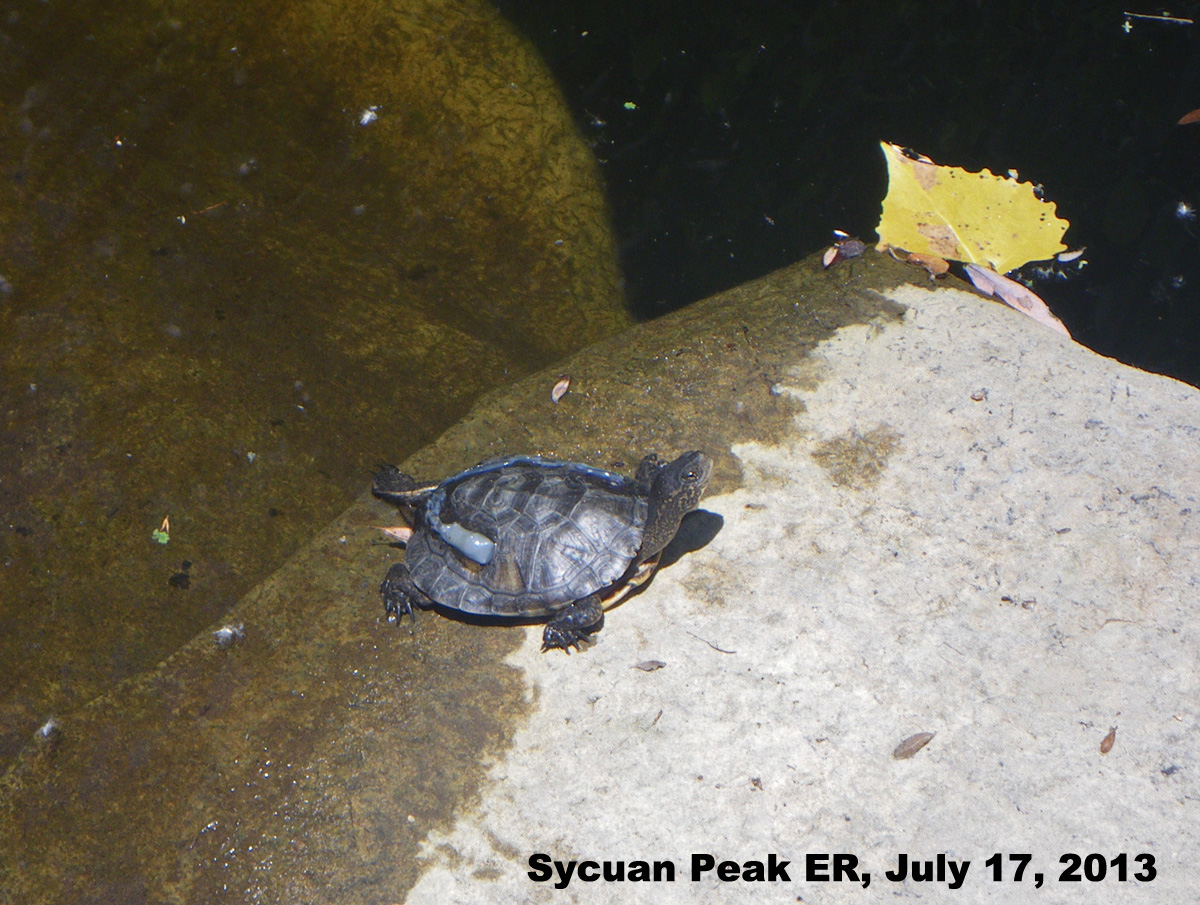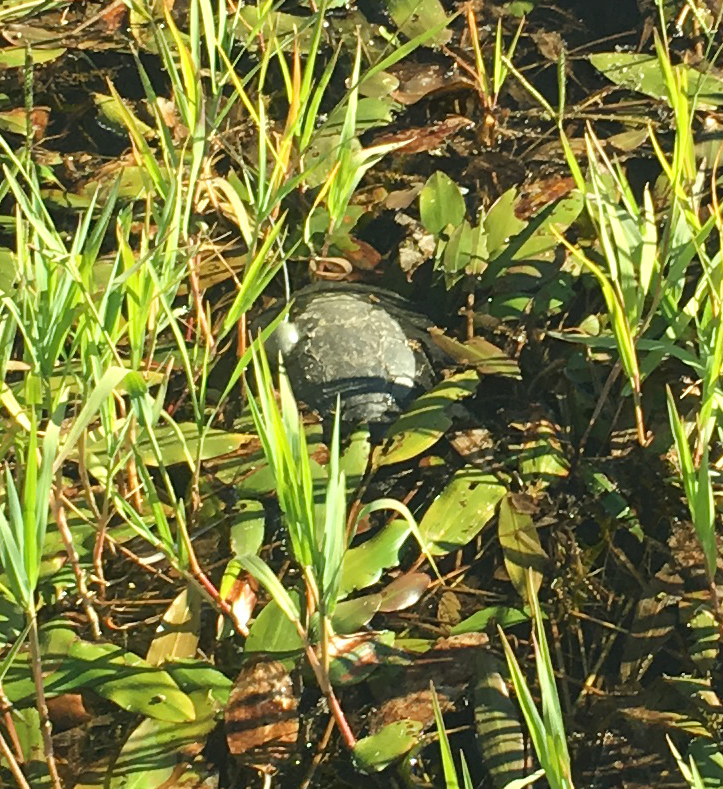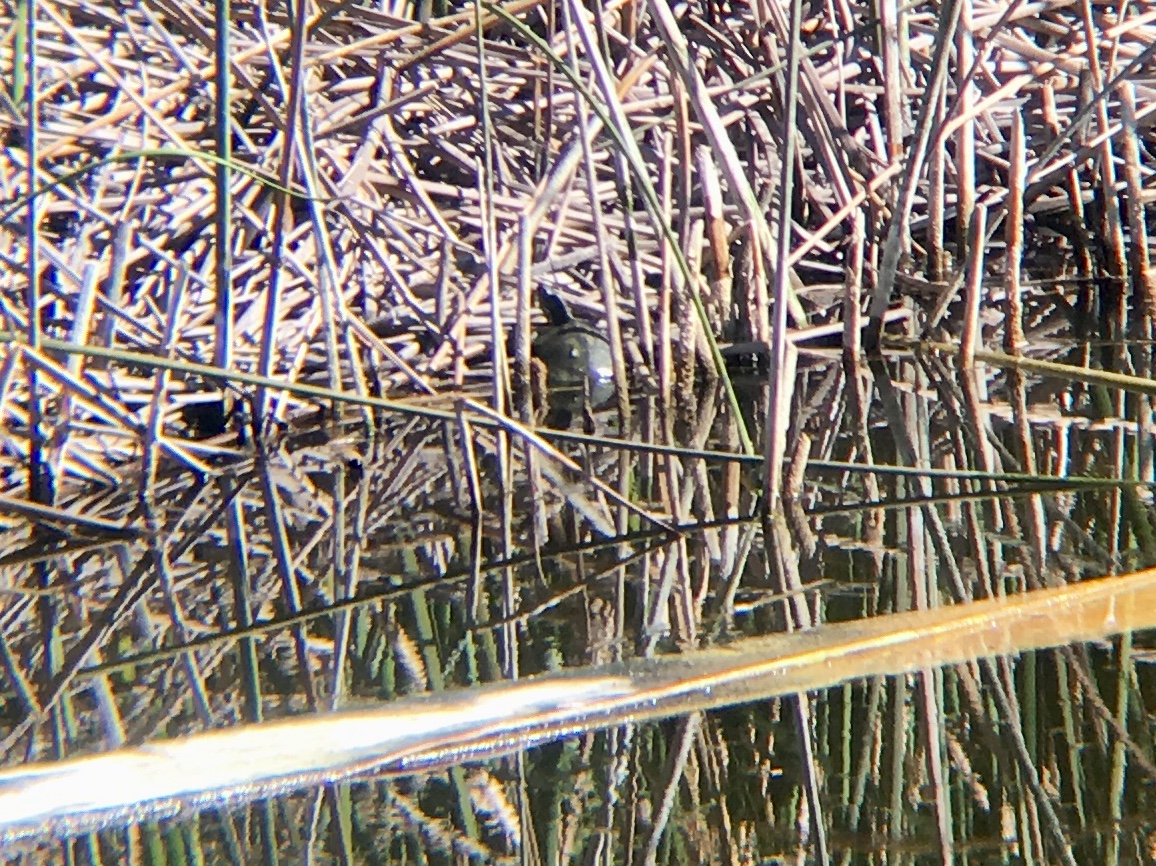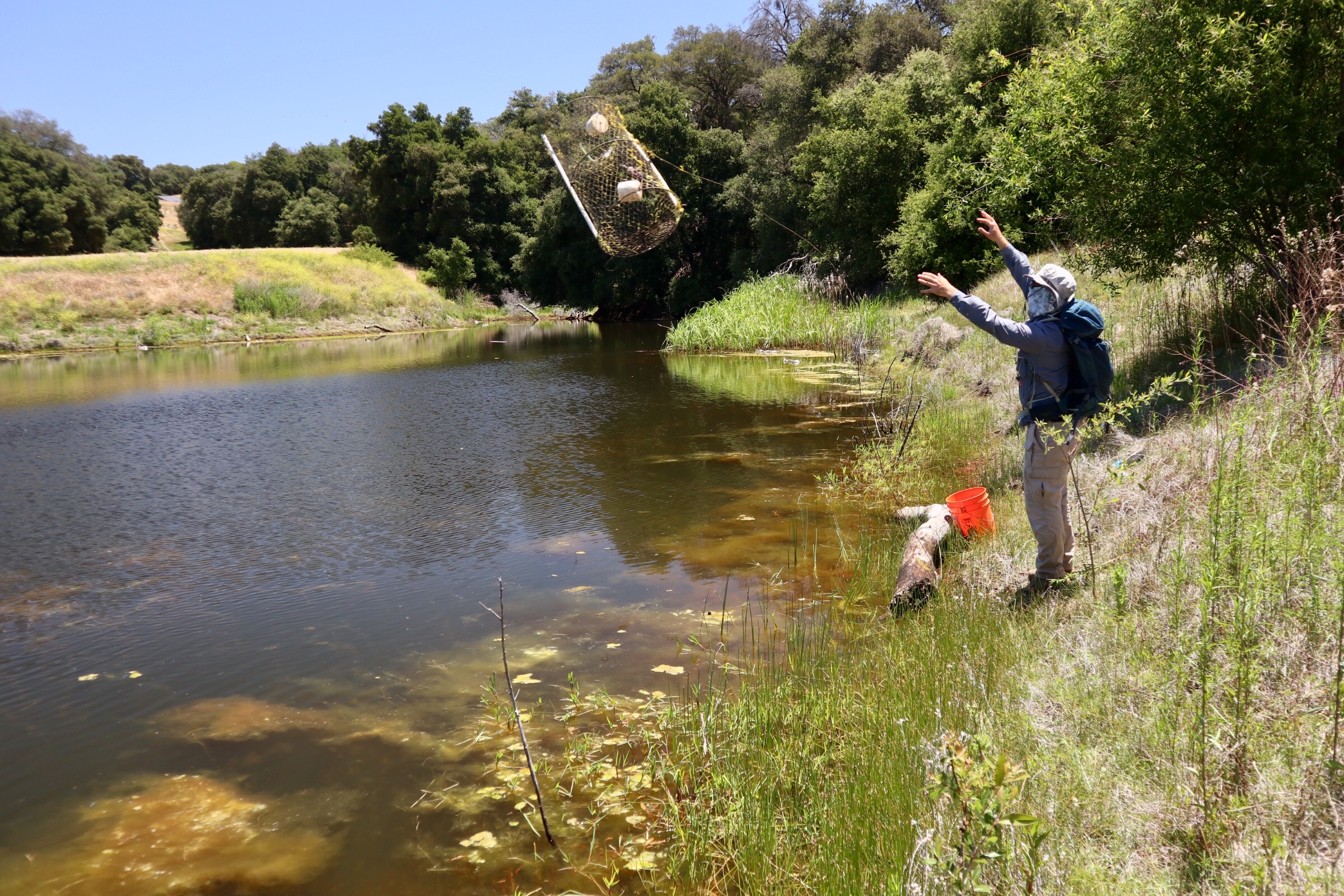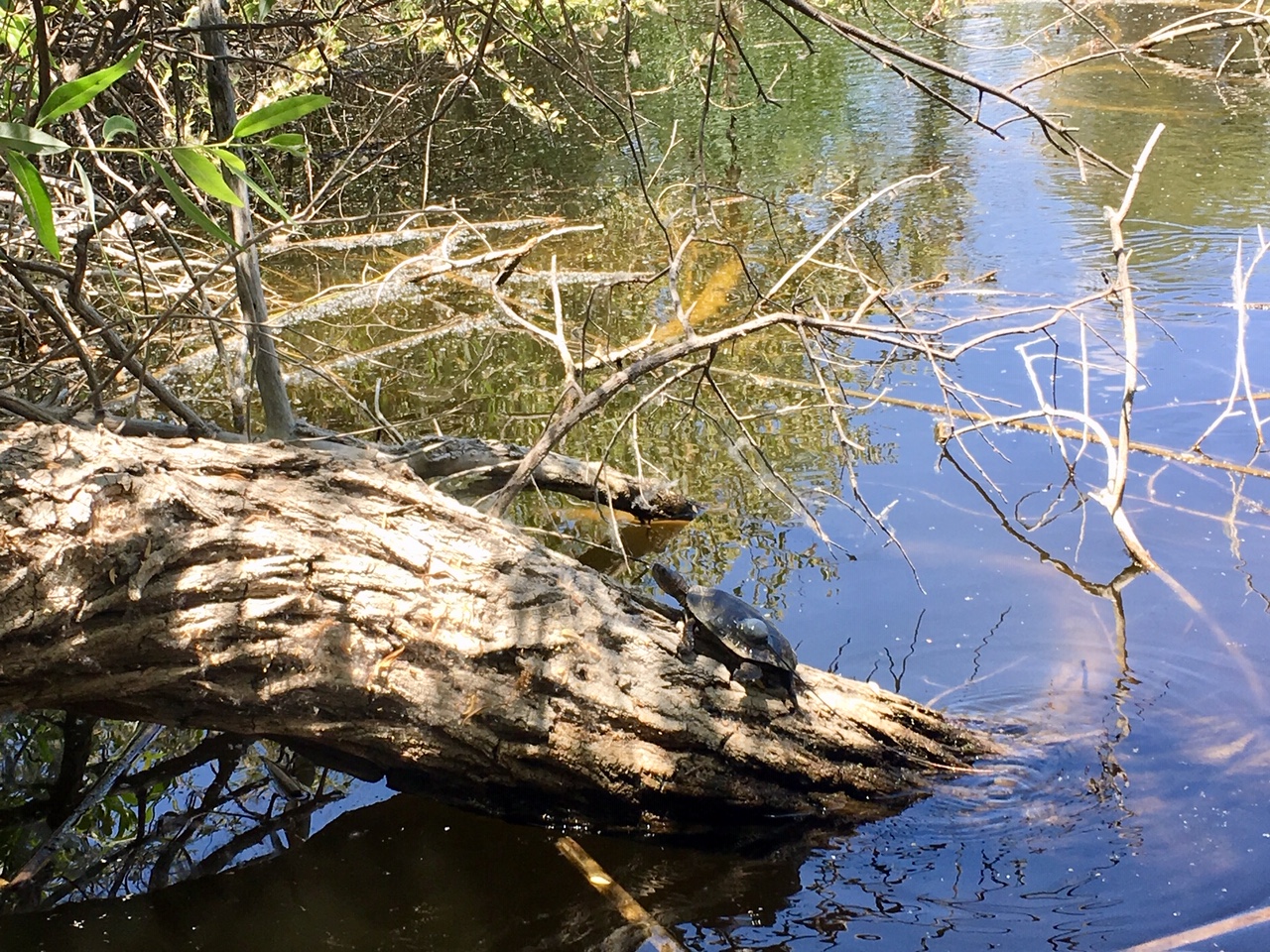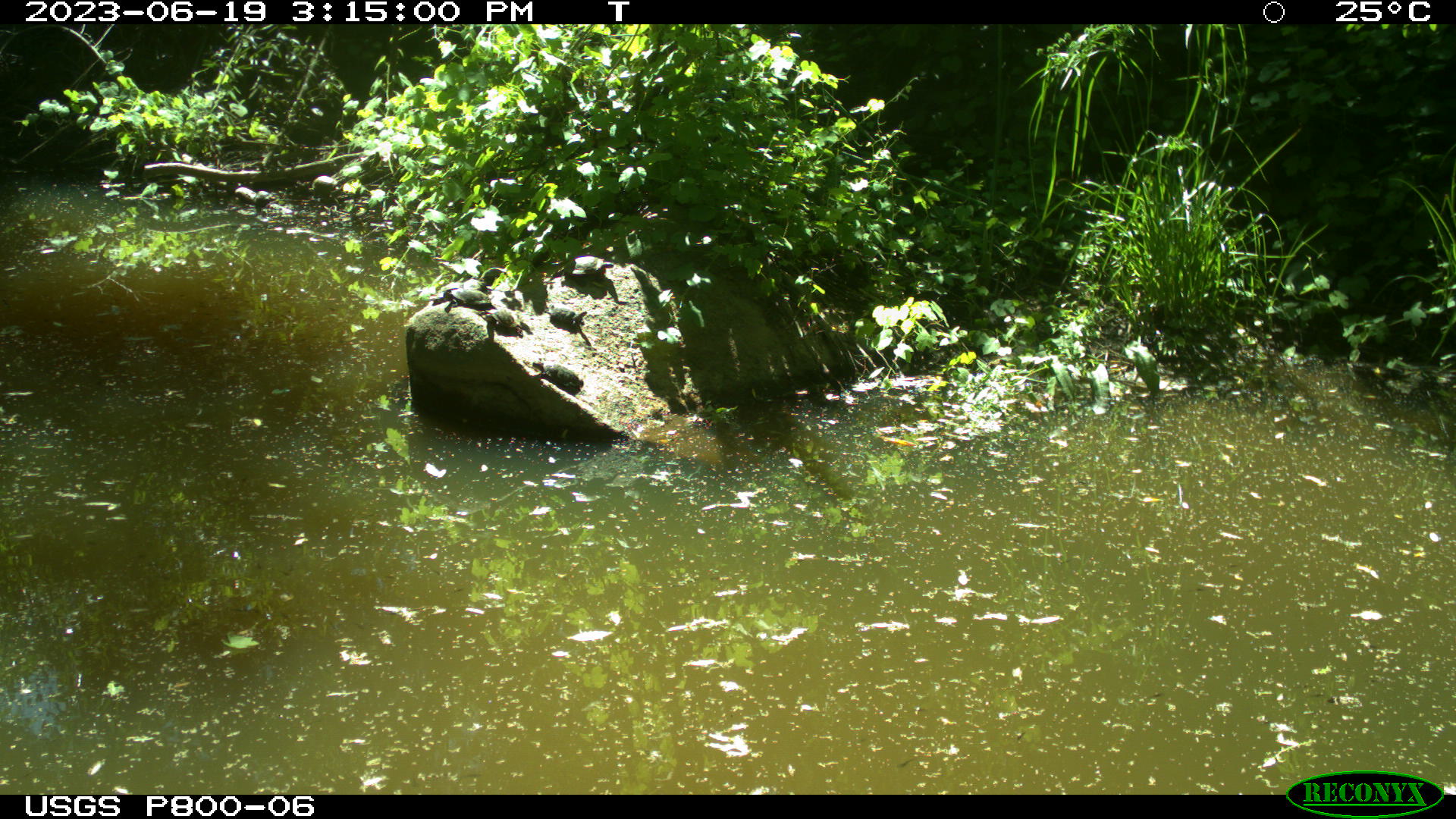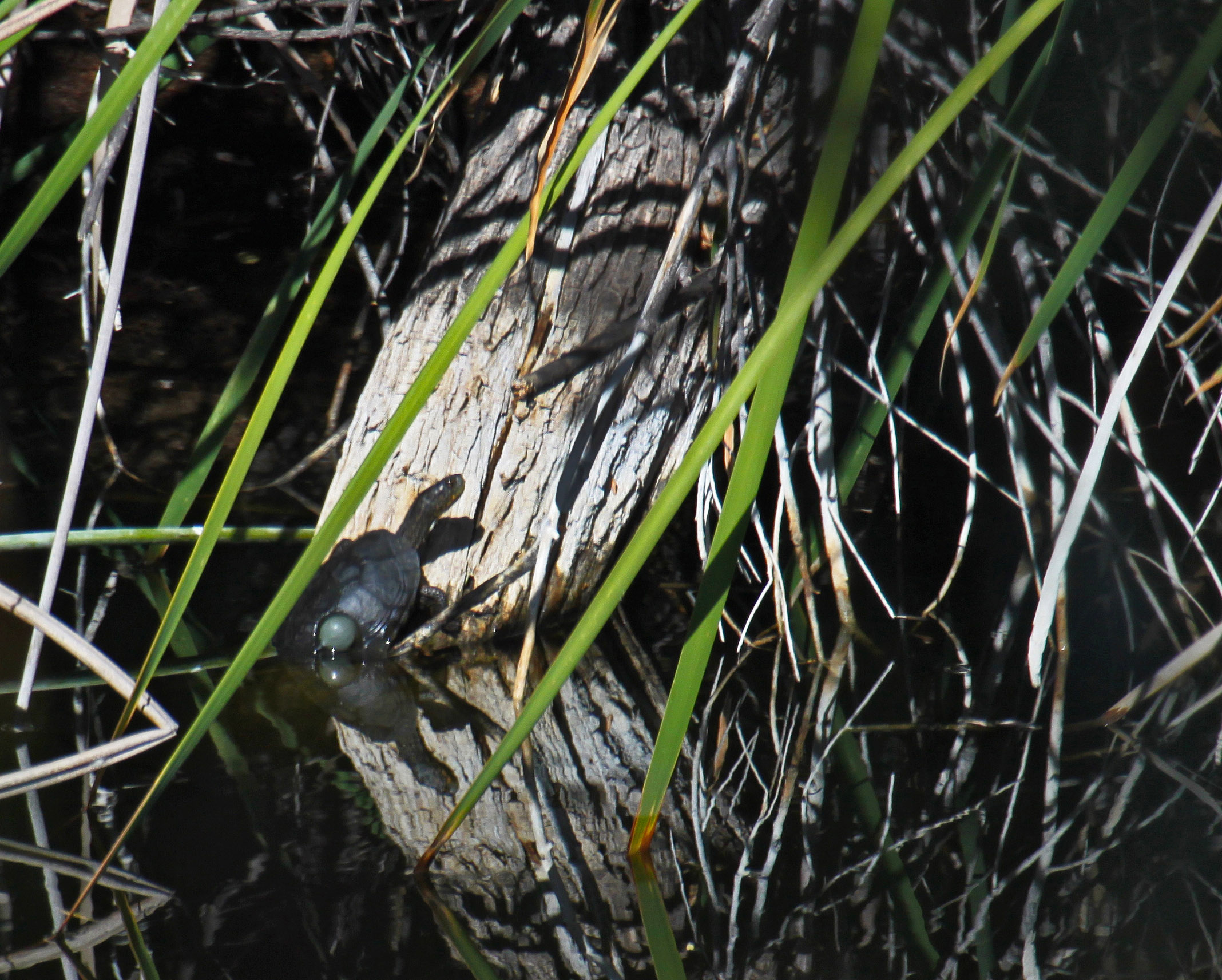USGS Southwestern Pond Turtle Management and Monitoring Study
The southwestern pond turtles (Actinimeys pallida; pond turtle) has been declining throughout its range and has been extirpated from much of coastal southern California (Bury and Germano 2008, Thomson et al. 2016). Historically, the pond turtle inhabited coastal draining streams, ponds, and lakes, fed primarily on small aquatic invertebrates and vegetation, and had no native aquatic predators (Bury and Germano 2008). However, threats to the pond turtle now include altered hydrology (dams and diversions), habitat fragmentation, direct mortality from roads and development, and predation by nonnative aquatic species (NAS) including American bullfrogs (Lithobates catesbeianus, bullfrog) and largemouth bass (Micropterus salmoides) (Brattstrom and Messer 1988, Stephenson and Calcarone 1999).
The USGS conducts research on the natural history of and threats and impacts to reptiles and amphibians in coastal southern California to understand the demography of rare and listed taxa in the region. The research aims to study the responses of the pond turtle to both threats and management actions. Specifically, USGS research seeks to understand the causes of decline of the pond turtle on conserved lands within San Diego's conserved lands and how the populations respond to management actions including pond turtle translocations and NAS removal.
Translocations of pond turtles, removal of nonnative species, habitat restoration, and restoration of connectivity have been the primary tools used for restoration of pond turtle populations within the MSPA of San Diego County, CA since 2009. In 2009, the USGS partnered with San Diego Zoo and CDFW to study the effects of removing NAS and headstarting (raising hatchlings in a controlled environment before releasing them to the wild) pond turtles at CDFW’s Sycuan Peak Ecological Reserve (SPER). In 2014, the USGS began to study translocations of adult pond turtles as a conservation tool, and 18 pond turtles were translocated from private ponds in the Pine Valley Creek watershed to ponds at CDFW’s Rancho Jamul Ecological Reserve (RJER) to evaluate the potential to restore the pond turtle to the Otay River watershed. In 2019, the USGS translocated 12 pond turtles in the San Dieguito watershed from Black Canyon to a pond near the headwaters of Scholder Creek at The Nature Conservancy’s Mesa Grande Easement with eight additional pond turtles translocated in subsequent years (Sebes et al. 2024a). USGS continues to monitor headstarted and translocated populations for recruitment, study the removal of NAS, and conduct surveys on new or remote conserved lands to find additional populations and restoration sites.
Project Groups
-
SDMMP_2024_24309896 Southwestern Pond Turtle Restoration
Project Focus
Southwestern pond turtle
MESA GRANDE EASEMENT, RANCHO JAMUL ECOLOGICAL RESERVE, SYCUAN PEAK ECOLOGICAL RESERVE
Chris Brown
California Department of Fish & Wildlife; SANDAG; The Nature Conservancy; U.S. Fish and Wildlife Service
Robert N. Fisher
U.S. Geological Survey
California Department of Fish & Wildlife; City of San Diego Parks and Recreation Department; City of San Diego Public Utilities Department; County of San Diego Department of Parks and Recreation; San Diego Zoo; The Nature Conservancy; U.S. Fish and Wildlife Service; U.S. Forest Service Cleveland National Forest
Jeremy Sebes
Sarah McCutcheon; Chris Brown
Chris Brown
Jeremy Sebes
